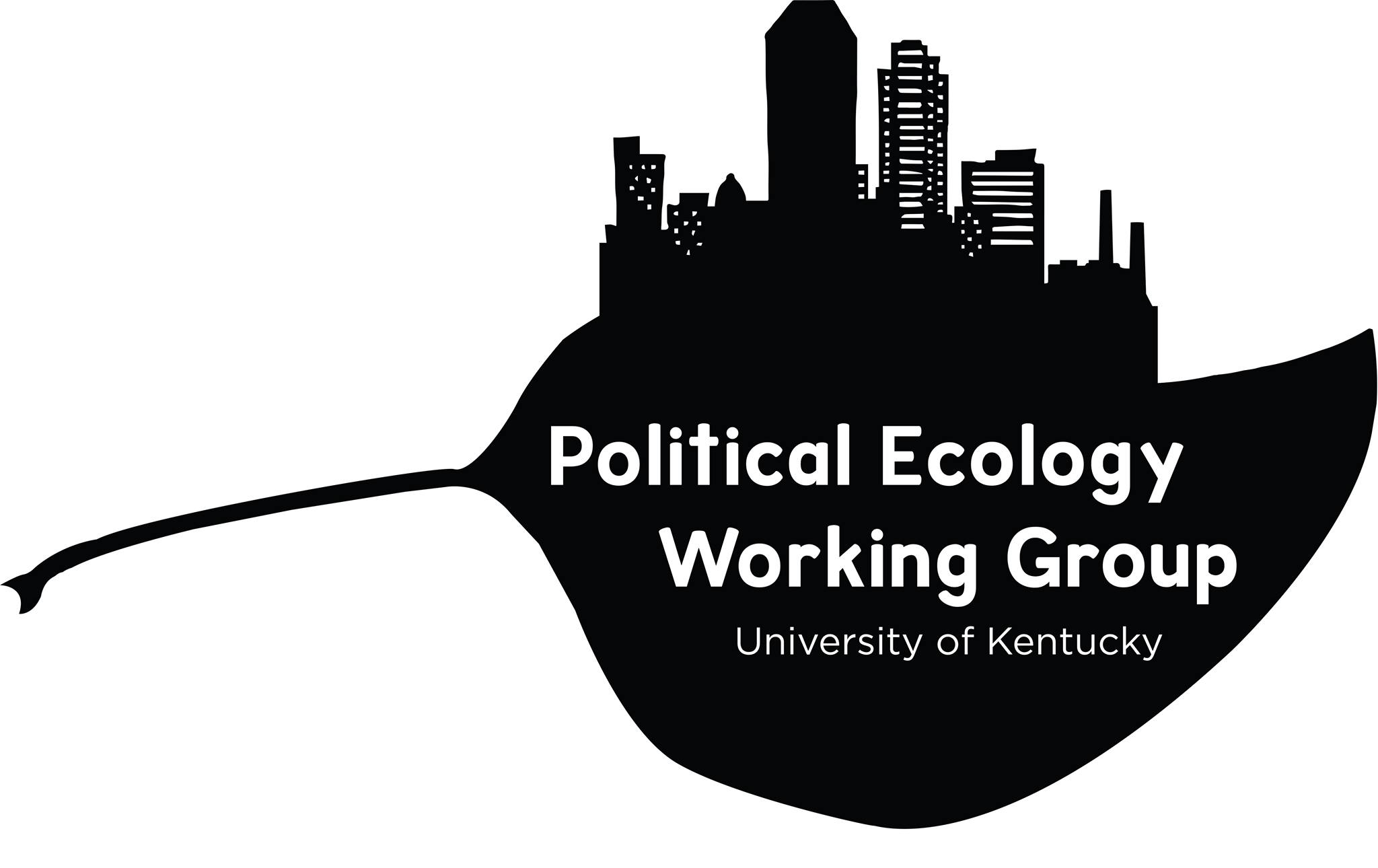by Patrick Bigger*
The Kentucky-based conference has grown into one of the largest gatherings of political ecologists in the world—registration for the upcoming sixth edition will open in September.

The conference is organised by the Univeristy of Kentucky Political Ecology Working Group. Source: https://www.facebook.com/ukpewg/
The University of Kentucky Political Ecology Working Group (UK-PEWG) recently began circulating a call-for-papers for the 6th annual Dimensions of Political Ecology (DOPE): Conference on Nature/Society to be held in Lexington, Kentucky, February 26-28, 2016.
Since the inaugural conference in 2010, DOPE has grown into one of the largest gatherings of political ecologists in the world. For each of the past several years, more than 400 political ecologists from across the globe have attended this meeting, entirely organized by graduate students, providing a space for scholars from disparate geographical, institutional, and disciplinary backgrounds to engage with one another.
Conference organizers have sought to create a welcoming, supportive environment for junior scholars to share their work, while at the same time providing a forum for cutting-edge political ecological thought and debate on key topics in the community.
In this post, I want to give readers some insight into the motivations of the organizers, the institutional history behind the conference, and encourage readers to attend—even though Kentucky may not be the first place that springs to mind for conference travel destinations. A more substantive history of the conference and its organizers is available here.
The key organizing principle for DOPE was well summarized by Paul Robbins in his keynote address at the first edition of the conference. Robbins defined political ecology not as the turf of any set of disciplines, nor based on any particular canon, methodology, or geographical specialization. Instead, political ecology is a community of practice composed of people who self-identify as political ecologists who are concerned with specific contradictions or problems in the socio-natural world.
DOPE organizers have sought to make this tent even bigger by appending the ‘dimensions of’ to ‘political ecology’. We hoped to include people in these dialogues who would not necessarily identify as political ecologists, but are interested in some aspect of political ecological thought or practice.
We always encourage scholars from disciplines not immediately associated with concern for the social dimensions of environmental change—ranging from atmospheric chemists to hydrologists—to come and engage with social scientists and scholars from the humanities. They have shared concerns but might not have otherwise had the opportunity to speak to one another because of the structure of traditional academic disciplines.
Further, the conference has sought to include people from outside of the academy, including farmers, activists, policy makers, environmental restorationists, and community members impacted by environmental change. This is not to say that DOPE isn’t a scholarly event; it is, but it is also much more than that.
In addition to activities one typically finds at academic events, DOPE has regularly featured diverse field trips around the Bluegrass and Appalachian regions of Kentucky, dealing with topics from the ramifications of destructive coal mining practices to the political ecology of bourbon production and sustainable agriculture.
For the last several years the conference has also included a featured panel on scholar-activism comprising researchers and activists they have partnered with in the course of their work. These panels have led to serious conversations about political and scholarly praxis and new collaborative projects.
In the spirit of inclusion and growing the approach, conference organizers have convened an undergraduate symposium for university students working on political-ecological topics, allowing young scholars and activists an opportunity to share their work with one another and get feedback from more senior political ecologists.
Other innovative activities have included discussions on the role of science fiction in articulating ecological futures, with readings of speculative fiction authored by political ecologists, discussions with activist film makers, and conversations between political ecologists with radically different approaches to unpacking socio-natural relations and their political implications.
The upcoming conference in 2016 will build on the legacies of previous conferences, but push emerging areas of political ecology to the fore. Dr. Tracey Osborne, the director of The University of Arizona’s Public Political Ecologies Lab will deliver the keynote address. Dr. Osborne’s commitment to relevant, engaged public scholarship will undoubtedly lead to debate and action as to how political ecologists can make their work more useful for communities in which they work, for policy advocacy, and create new modes of collaboration between scholars and their various interlocutors.
The conference will also feature a panel of outstanding international scholars discussing critical issues in urban political ecology. This subfield has witnessed rapid growth over the last decade and generated increasingly deep connections between other disciplines concerned with urban forms and practices to understand the constitution and use of nature in the city. Previous panels in this series have focused on feminist political ecology, the pedagogy of political ecology, and exploring the roots and futures of political ecological thought, all to good effect.
The organizers of this year’s conference encourage prospective attendees to consider organizing their own paper sessions by drafting session-specific calls-for-papers, which the organizers will assist in distributing across the networks of contacts that have been developed through past conferences. These can take the form of traditional academic paper sessions, but organizers need not feel constrained to that format; critical dialogues, art installations, and roundtable discussions are all possibilities.
Registration for the conference will open in September, so be sure to check the University of Kentucky Political Ecology Working Group’s website for further details as they become available.
*Patrick Bigger is a post-doctoral researcher in geography at the University of Manchester and a member of the European Network of Political Ecology (ENTITLE) project.





